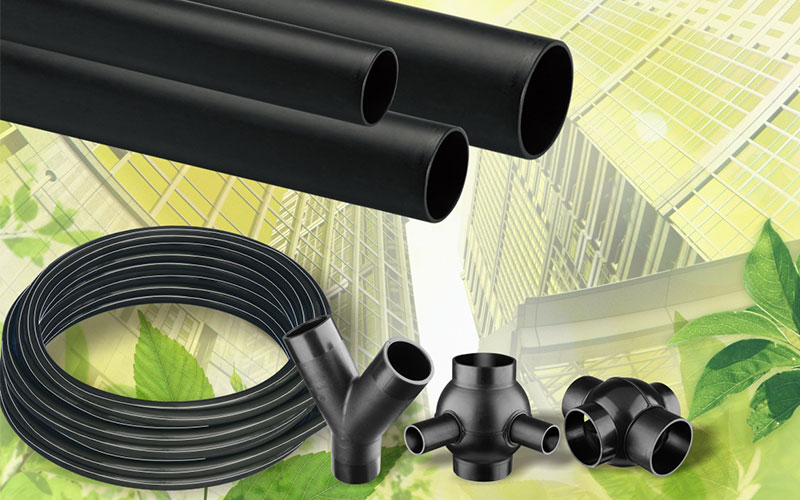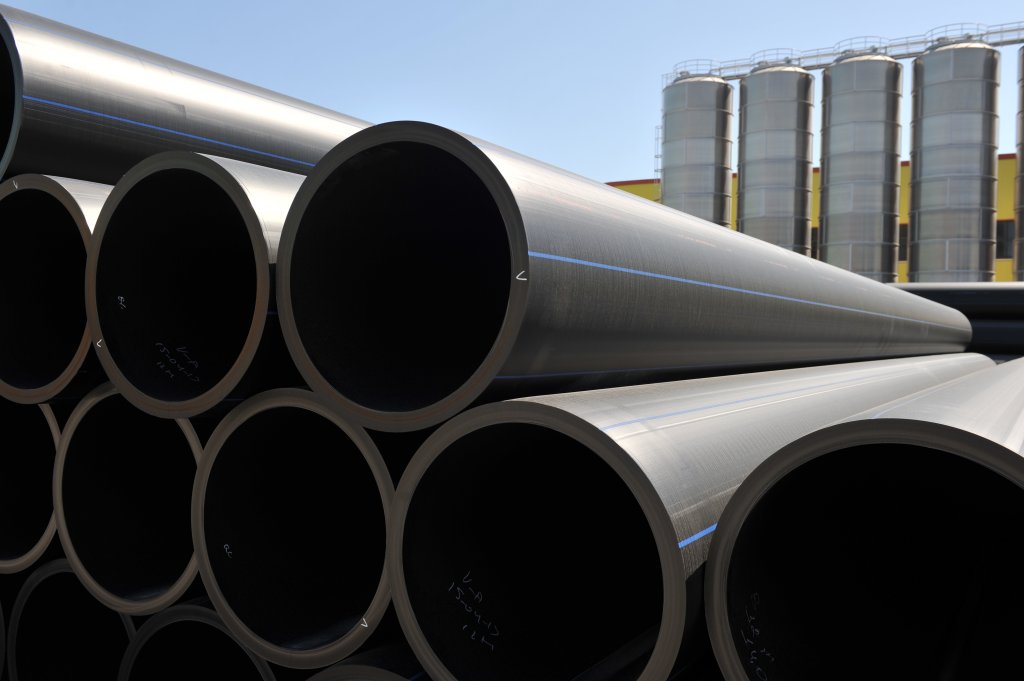How Midland TX HDPE Pipe Fittings in Stock Save Time
A Comprehensive Guide to the Different Usages of HDPE Pipe in Construction and Industry
HDPE pipes have become a critical element in contemporary building and commercial applications. Their one-of-a-kind homes, such as resistance to rust and light-weight style, make them appropriate for a variety of uses. From supply of water systems to agricultural watering, HDPE pipelines supply remedies that enhance efficiency and sustainability. Recognizing their diverse applications is essential for experts aiming to maximize facilities. What certain advantages do these pipelines offer each market?
Water System and Distribution Equipments
Water and circulation systems are vital components of city framework, typically relying upon high-density polyethylene (HDPE) pipelines for their toughness and effectiveness. These systems transportation drinkable water from treatment centers to consumers, making certain ease of access and safety. HDPE pipelines are favored for their resistance to rust, chemicals, and extreme temperature levels, which boosts their durability and reduces upkeep costs. Furthermore, their lightweight nature enables easier setup and transport, making them suitable for various metropolitan and country applications.
The flexibility of HDPE pipelines allows them to be installed in limited rooms and around challenges, decreasing the need for substantial excavation (American Plastics HDPE Pipe Manufacturing). Their smooth indoor surface area reduces friction losses, enhancing water circulation prices. As cities proceed to expand, the need for reliable water system systems raises, placing HDPE pipelines as a lasting remedy for modern infrastructure projects. Their proven performance history makes them a favored option among engineers and metropolitan coordinators alike
Wastewater Administration and Treatment
Efficient wastewater administration and therapy are vital for preserving public health and wellness and ecological high quality. HDPE pipes play an essential role in this process as a result of their durability, resistance to corrosion, and capacity to hold up against rough chemicals. These pipelines are frequently utilized in different applications, including sewer systems, stormwater water drainage, and wastewater therapy facilities. Their light-weight nature promotes less complicated installment and transport, decreasing labor costs and time.
Furthermore, HDPE pipelines have a smooth interior surface that decreases rubbing loss, promoting reliable circulation rates. They are likewise much less vulnerable to leaks and failures compared to typical products, ensuring that pollutants are had effectively. Their adaptability permits for adaptability in various soil problems, making them appropriate for varied ecological setups. As sectors increasingly focus on lasting practices, using HDPE pipes in wastewater administration systems lines up with objectives for minimizing ecological influence and boosting resource healing.
Agricultural Irrigation Solutions
In agricultural settings, efficient watering remedies are important for maximizing plant returns and handling water resources. HDPE (High-Density Polyethylene) pipes play an important role in modern watering systems as a result of their longevity, versatility, and resistance to rust. Their capability to endure high pressures makes them ideal for both surface area and subsurface irrigation applications, guaranteeing uniform water circulation across areas.
Farmers can use HDPE pipes in drip watering systems, which provide water directly to plant origins, lessening wastage and promoting healthy growth. In addition, these pipes are lightweight and very easy to set up, reducing labor prices and installation time. Their lengthy life expectancy and reduced maintenance demands further boost their appeal in farming practices.
In addition, HDPE pipes are eco friendly, as they can be reused and do not leach unsafe chemicals right into the dirt. This makes them a lasting choice for farmers intending to embrace eco-friendly agricultural methods while maximizing efficiency.
Industrial Applications and Procedures
Flexibility is a hallmark of HDPE pipelines, making them indispensable in different commercial applications and procedures. These pipes are commonly used in chemical handling industries because of their superb resistance to a vast array of corrosive substances. HDPE's lightweight nature, integrated with high tensile toughness, permits easy installation and long-lasting performance in requiring atmospheres.
In the oil and gas field, HDPE pipelines play a vital function in moving hydrocarbons and gases, many thanks to their resilience and flexibility - Pipe Supplier American Plastics Midland. In addition, they are used in mining procedures for the transport of slurry and other materials, where traditional piping systems may fall short
HDPE pipes are significantly made use of in producing facilities for water supply lines and wastewater management. Their capacity to stand up to extreme temperatures and pressures makes them suitable for a selection of industrial processes. On the whole, HDPE pipes contribute substantially to effectiveness and safety throughout diverse industrial applications.
Stormwater Monitoring and Drain Systems
Stormwater monitoring and drain systems are crucial parts in metropolitan infrastructure, made to handle excess rains and minimize flooding dangers. High-density polyethylene (HDPE) pipes are progressively utilized in these systems because of their resilience, adaptability, and resistance to rust. These pipelines efficiently move stormwater away from booming areas, decreasing surface drainage and avoiding waterlogging.
HDPE's light-weight nature facilitates much easier installation, minimizing labor get more info prices and construction time. In addition, its resistance to chemicals and environmental stress factors assurances longevity and integrity in various climates. Along with conventional drain applications, HDPE pipelines are also employed in ingenious remedies such as green facilities, that includes rainfall gardens and permeable pavements.

Frequently Asked Concerns
Exactly How Does HDPE Pipeline Contrast to PVC Pipe in Cost?
As a whole, HDPE pipeline tends to be a lot more pricey than PVC pipeline due to its enhanced toughness and adaptability. Long-term cost considerations, such as upkeep and life-span, might prefer HDPE in certain applications.
What Is the Life Expectancy of HDPE Pipeline Under Varying Conditions?
HDPE pipelines normally have a life expectancy of 50 to 100 years, depending on environmental problems, installation techniques, and use. Variables such as temperature level, dirt type, and exposure to chemicals can greatly affect their longevity.
Can HDPE Piping Be Recycled After Use?
Yes, HDPE pipes can be reused after use. The reusing process involves thawing down the material, enabling it to be repurposed into brand-new products, thereby advertising sustainability and decreasing ecological effect connected with plastic waste.
Exist Any Details Setup Challenges With HDPE Pipelines?
Setup challenges with HDPE pipelines include appropriate jointing techniques, making sure sufficient trench problems, and managing thermal development. Additionally, skilled labor is needed to manage specialized devices, which can make complex the installation procedure in numerous atmospheres.

What Certifications Should I Seek When Buying HDPE Pipelines?
When acquiring HDPE pipes, one should seek accreditations such as ASTM, AASHTO, and ISO, which validate high quality and conformity with market standards, ensuring durability and efficiency in various applications. - Pipe Supplier American Plastics Midland